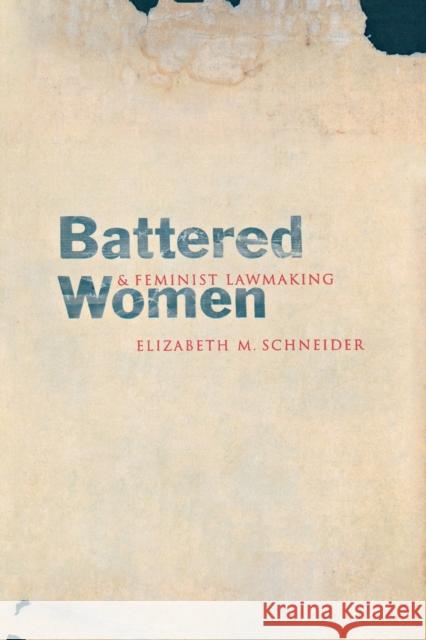Battered Women and Feminist Lawmaking » książka
Battered Women and Feminist Lawmaking
ISBN-13: 9780300094114 / Angielski / Miękka / 2002 / 336 str.
Women's rights advocates in the United States have long argued that violence against women denies women equality and citizenship, but it took a movement of feminist activists and lawyers, beginning in the late 1960s, to set about realizing this vision and transforming domestic violence from a private problem into a public harm. This important book examines the pathbreaking legal process that has brought the pervasiveness and severity of domestic violence to public attention and has led the United States Congress, the Supreme Court, and the United Nations to address the problem.
Elizabeth Schneider has played a pioneering role in this process. From an insider's perspective she explores how claims of rights for battered women have emerged from feminist activism, and she assesses the possibilities and limitations of feminist legal advocacy to improve battered women's lives and transform law and culture. The book chronicles the struggle to incorporate feminist arguments into law, particularly in cases of battered women who kill their assailants and battered women who are mothers. With a broad perspective on feminist lawmaking as a vehicle of social change, Schneider examines subjects as wide-ranging as criminal prosecution of batterers, the civil rights remedy of the Violence Against Women Act of 1994, the O. J. Simpson trials, and a class on battered women and the law that she taught at Harvard Law School. Feminist lawmaking on woman abuse, Schneider argues, should reaffirm the historic vision of violence and gender equality that originally animated activist and legal work.











